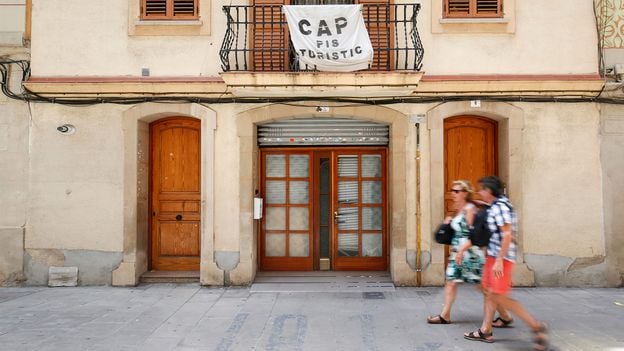On 21 June, Barcelona mayor Jaume Collboni announced plans to ban short term rentals in the city starting in November 2028. The decision is designed to solve what Collboni described as “Barcelona’s biggest problem” – the housing crisis that has seen residents and workers priced out of the market – by returning the 10,000 apartments currently listed as short-term rentals on Airbnb and other platforms into the housing market.
Barcelona is not the only city to be strongly regulating – or even banning – short-term rentals outright. It has been illegal since September 2023 to rent out an apartment as a short-term let in New York City unless you are registered with the city and you are present in the apartment when someone is staying – a change also made to assuage the city’s housing crisis. Berlin banned Airbnbs and short-term rentals back in 2014, bringing them back under tight restrictions in 2018; and in many of California’s coastal cities, including Santa Monica, short-term rentals are either banned or highly restricted.
In British Columbia, Canada, Premier David Eby put the issue succinctly as he clarified new short-term rental rules: “If you’re flipping homes, if you’re buying places to do short-term rental, if you’re buying a home to leave it vacant, we have consistently, publicly, repeatedly sent the message: Do not compete with families and individuals that are looking for a place to live with your investment dollars.”



Short term rentals would be fine if companies like Airbnb weren’t getting a cut. Like they existed on Craigslist and as actual bead-and-breakfasts way before airbnb et al existed.
I imagine people are willing to give a cut to Airbnb because they perceive, rightly or wrongly, that Aribnb is taking care of all the details. Insurance, liability, blocking troublemakers, data and time coordination etc.
I use to travel a lot before airbnb existed, and most of it was to uhh, old school bnbs.
Lovely! Amazing! But maybe that was just the areas we were going to were amazing. I wonder how well they’d work in cities and such? All my experiences were in much more rural areas, so you got a lot more room and such.
The problem isn’t that AirBnB gets a cut, the problem is that they make such a process more efficient and accessible. Property is a finite resource, especially when talking about a specific area like a city. We don’t want to turn cities into amusement parks that the workers have to commute an hour to get to, even if that’s what is the most profitable. Housing should be affordable and available for the people who actually use and make the city run daily.